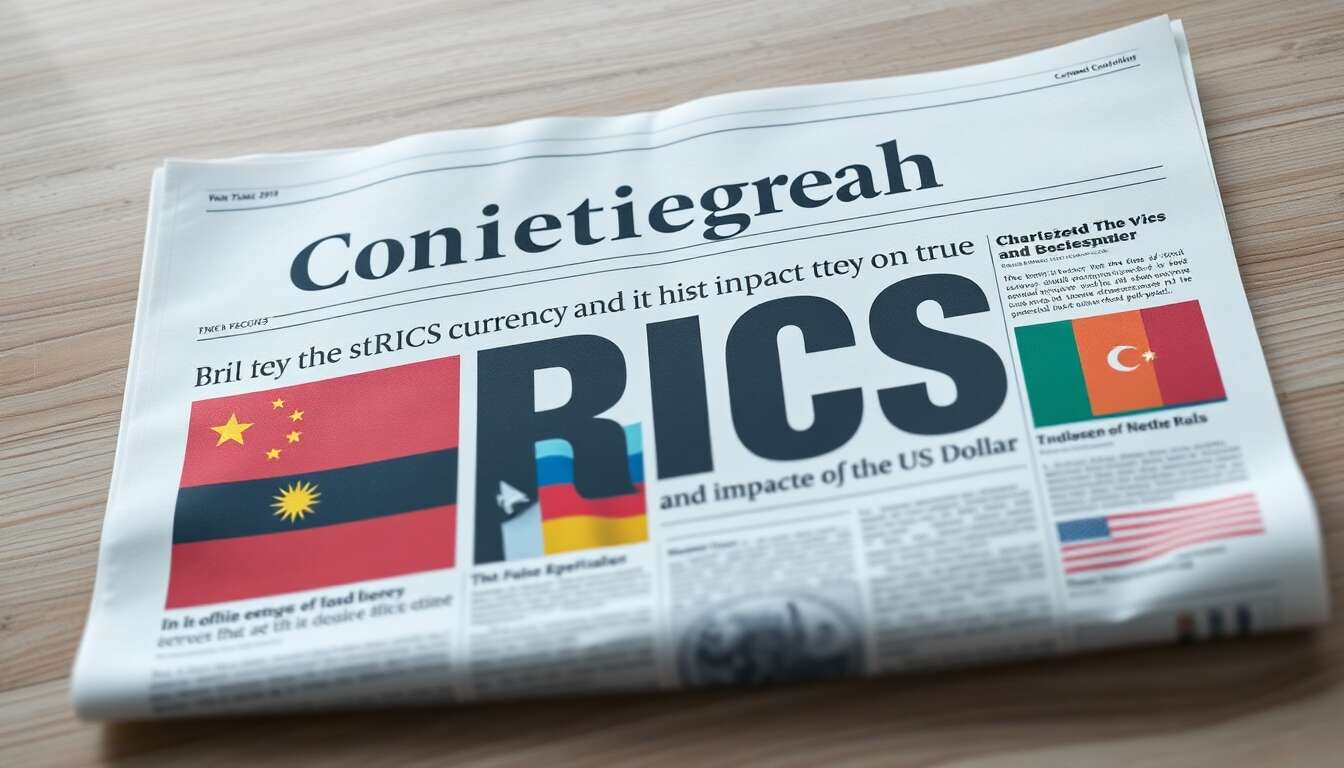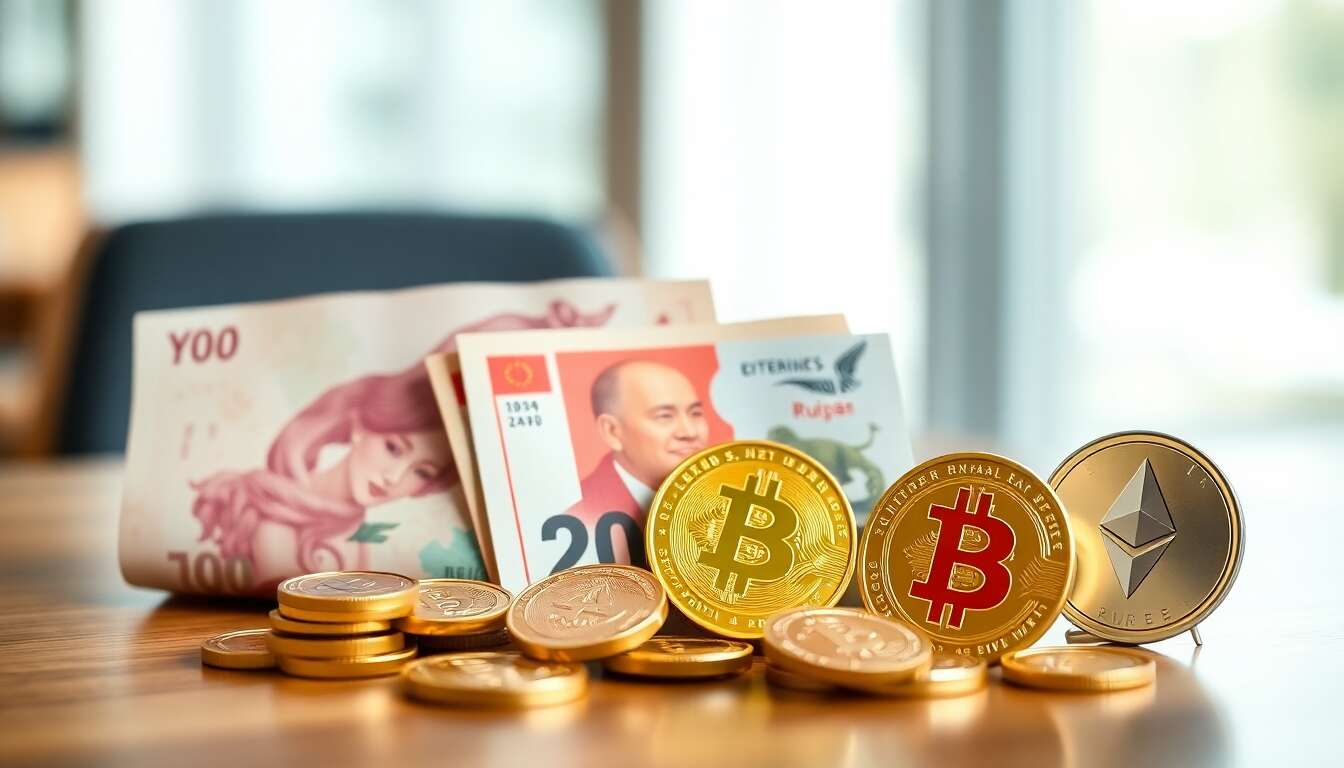The economic landscape is on the brink of a potential revolution, with talks surrounding the launch of BRICS money gaining momentum. This initiative, developed by the BRICS nations—Brazil, Russia, India, China, and South Africa—could dramatically shift global financial dynamics. But why might a platform like Cointelegraph soon feature BRICS money prominently ? Let’s delve into the reasons.
Understanding the Importance of BRICS Money
What Is BRICS Money ?
BRICS money is part of a broader initiative aimed at facilitating cross-border transactions without relying on traditional financial infrastructures that are often dominated by the US dollar and Western financial institutions. The idea is to create a self-reliant financial ecosystem among these nations.
The Economic Muscle of BRICS
In terms of economic power, BRICS collectively accounted for over 36.7% of the global GDP, a staggering $26 trillion. The introduction of BRICS money could significantly alter global trade dynamics by reducing costs associated with currency conversions and transactions settled in dollars.
- Potential reduction in transaction fees
- Increased financial independence from the US dollar
- A more unified economic stance among BRICS nations
The Broader Ambition
BRICS money is more than just currency; it represents a movement towards reducing dependency on current financial systems like SWIFT, which are susceptible to external sanctions. This endeavor underscores the determination of BRICS nations to create a financial infrastructure free from Western dominance.
As we delve deeper into the implications, it’s crucial to explore the economic ramifications of introducing a new BRICS currency.
The Economic Implications of a New BRICS Currency

Potential Shifts in Global Trade
Introducing a BRICS currency could fundamentally alter global trade. Currently, the US dollar’s dominance means most international transactions are funneled through channels that the US can influence. A BRICS-specific currency could dilute this control, offering an alternative path for countries wishing to trade outside the US influence sphere.
Reducing Costs and Risks
Many nations suffer increased exchange rate risks and transaction costs by using intermediaries reliant on the US financial systems. With BRICS money, these constraints might lessen, leading to a potentially more equitable and stable financial environment.
A Growing Alliance
The economic ties between BRICS countries could strengthen as they rally around a shared currency, fostering further economic and political cooperation. This could lead to:
- Increased internal investment and trade
- Stronger negotiating positions in international trade deals
- Enhanced economic resilience against external pressures
While the economic implications are vast, one cannot ignore the potential repercussions for existing reserve currencies, particularly the US dollar.
BRICS Money and Its Potential Impact on the US Dollar

Challenging the Dollar’s Dominance
The US dollar has long been the world’s primary reserve currency, a position that grants the United States considerable economic influence worldwide. Introducing a competitive BRICS currency could challenge this status quo, potentially reshaping the global financial order.
Impacts on US Economic Influence
With a new BRICS currency in play, countries could increasingly opt for this option over the dollar, leading to a decline in dollar-based transactions. This shift could reduce the economic leverage the US holds, impacting its ability to impose economic sanctions.
Market Fluctuations
Markets could experience increased volatility as investors and countries adjust to the presence of an alternative reserve currency. This adjustment phase could see fluctuations impacting currencies and stock markets worldwide.
| Currency | Current Market Share | Estimated Impact |
|---|---|---|
| US Dollar | 60% | Potential decrease |
| Euro | 20% | Stability or slight change |
| BRICS Currency | 0% | Emerging presence |
The idea of a major currency can’t be fully explored without considering its foundational backing. Let’s discuss the challenges tied to implementing a gold-backed currency like the proposed BRICS money.
The Challenges of Implementing a Gold-Backed Currency
Sourcing and Maintaining Gold Reserves
A gold-backed currency necessitates significant reserves. Sourcing and securing these reserves across the BRICS nations present logistical and political hurdles. It requires considerable coordination and trust among the member states to ensure all commitments are met.
Managing Exchange Rates
A gold-backed currency would inherently tie the exchange rate to the fluctuating value of gold. The volatility of the gold market could lead to frequent adjustments, impacting economic stability within member nations.
Impact on Monetary Policy
Member states could find their monetary policies constrained, with limited ability to print money or manage interest rates independently. This inflexibility could be challenging, particularly during economic downturns or crises.
The challenges are substantial, but the potential integration of cryptocurrencies might offer innovative solutions.
Potential Interactions between BRICS Money and Cryptocurrencies

Cryptocurrency as a Platform
Integrating cryptocurrencies with BRICS money could provide the technical backbone required for smooth and efficient transactions. Blockchain technology offers secure and transparent transaction mechanisms that are accessible worldwide.
Innovation and Opportunities
Cryptocurrencies could enable new financial products and services, offering a level of innovation not possible in traditional financial systems. BRICS money might also spur further development in the broader cryptocurrency market.
- Decentralized finance applications
- Smart contract integration
- Distributed ledger technologies
Regulatory Considerations
The intersection of BRICS money with cryptocurrencies will necessitate a robust regulatory framework. Establishing guidelines that protect users while fostering innovation will be crucial for building trust and ensuring widespread adoption.
The realm of global finance is evolving rapidly, and BRICS money stands poised at the edge of this transformation. As various factors come into play, the financial world watches closely.
The development of BRICS money could be a game-changer in the world of international finance, flipping the current script dominated by the US dollar and Western systems. By examining the initiative’s objectives, economic implications, and technological potential, it’s clear that BRICS money could redefine global transactions. The budding relationship with cryptocurrencies adds another layer of intrigue, promising both innovation and challenges. The future of BRICS money could indeed reshape how the world views and conducts trade, and it’s a narrative that Cointelegraph might not only feature but champion.



